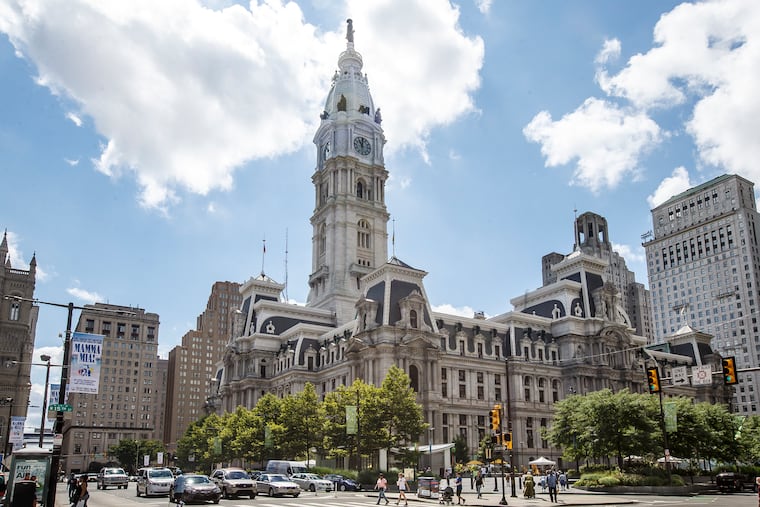Philly flush with cash thanks to business and real estate tax revenues
Philadelphia ended fiscal year 2018 with more than five times the expected surplus. But the Kenney administration is not committing to saving the money for a rainy day.

When the dust settled on Philadelphia's fiscal-year 2018 books, the city had five times the amount of money left over that it had expected — about $421 million.
But the Kenney administration won't commit to saving it for a rainy day.
Administration officials quickly made use of the extra cash by moving $22 million into the pension fund and asking that City Council transfer $30 million into the capital budget to pay for needed projects. If the transfer goes through, the city would have a $369 million balance.
The administration is planning to spend up to $73 million of that surplus on increasing city employees' minimum wage to $15 an hour and adding more affordable housing options over the next five years.
A portion of the remainder may be put into the city's empty rainy-day fund. Kenney administration officials say they will consider such a deposit when budget negotiations commence next year.
Municipal finance experts recommend that governments set aside money for emergency expenses, much as households are advised to do.
Not having savings "is just one of the challenges that rating agencies highlight in discussing the city's ratings," city spokesman Mike Dunn said in an email. "Others include the city's high fixed costs, a large unfunded pension liability, and a persistent high-poverty rate. All of these factors must and will be considered alongside the question of a rainy day fund."
When Mayor Kenney was a councilman in 2011, he sponsored the bill that created a rainy-day fund. But the city is only required to put money aside when the budget department predicts the upcoming fiscal year will end with a surplus of at least 3 percent of general fund spending. At that point, it is required by law to put 0.75 percent of predicted revenues into the rainy-day account.
So far, city officials have never estimated a large-enough balance to trigger deposits, even though they have ended up meeting the threshold.
For fiscal year 2018, the administration predicted a $75.5 million balance, which was too low for a rainy-day fund transfer. When the city controller announced in September that the city had ended the year with a $769 million cash balance, the administration said it still had bills to pay.
That final balance ended up being $421 million before the pension fund transfer and the creation of a capital pay-as-you-go program (assuming Council transfers the money). That is well over 3 percent of $4.4 billion in appropriations.
The extra money, Dunn said, was a result of higher than expected revenues from the business income and receipts tax (BIRT) and real property transfer tax, as well as lower spending.
The $30 million capital-spending transfer is expected to be introduced in Council on Thursday. Councilwoman Maria Quiñones-Sánchez, who is the appropriations committee chair, said Monday that she received notice the administration requested the transfer but was awaiting details.
The $30 million would go mostly to purchase trucks for the Fire and Streets Departments, and will include $5 million for the Philadelphia Museum of Art renovations and $2.5 million for commercial corridor projects such as the Market-Frankford El lighting project.
"That will allow the city to make important capital investments without borrowing and may reduce pressure on the FY20 capital budget, because we'll be directly appropriating more and borrowing less," Dunn said.